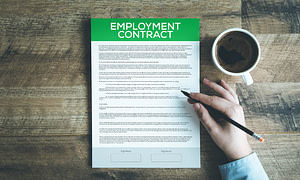Working it out
In Australia, the regulation of overtime work is governed by various laws, including the Fair Work Act 2009, industry awards, enterprise agreements, and individual employment contracts. While employers generally cannot force employees to work overtime arbitrarily, there are circumstances where overtime may be required or expected within the bounds of legal frameworks and employment agreements.
Understanding your rights and obligations regarding overtime is crucial, as it varies depending on factors such as industry, employment type, and contractual arrangements. There are some exceptions depending on the employment contract, industry regulations, and specific circumstances.
Award or agreement
Many industries in Australia are covered by awards or enterprise agreements that outline conditions for overtime work. These agreements may specify when overtime can be required, how much employees should be paid for overtime hours, and other relevant details. If an award or agreement applies to your employment, it's essential to review it to understand your rights and obligations regarding overtime.
Employment contract
The terms of your employment contract may also address overtime requirements. If your contract states that you may be required to work overtime when necessary, you might have to comply with reasonable requests from your employer.
Reasonableness
Even if your contract or an award/agreement allows for overtime, there are limits on what can be considered reasonable. Forcing excessive overtime or consistently expecting employees to work long hours without appropriate compensation or time off may be deemed unreasonable and could lead to disputes or legal action.
Health & safety
Australian workplace health and safety laws require employers to provide a safe working environment. If excessive overtime poses a risk to employees' health or safety, employers may have a duty to address these concerns.
Consultation & negotiation
In many cases, employers are expected to consult with employees and/or their representatives before implementing significant changes to working hours, including overtime requirements. Employees can negotiate with their employers regarding overtime arrangements, including factors like compensation, scheduling, and workload management.
If you find yourself in a situation where you believe your employer is imposing unreasonable overtime demands or violating your rights regarding overtime, it's important to seek guidance and support. This could involve discussing your concerns with your employer directly, seeking advice from a union or workplace representative, or consulting with a legal professional specialising in employment law.
Additionally, familiarising yourself with relevant workplace regulations and documentation, such as awards, agreements, and your employment contract, can empower you to advocate for fair treatment and resolve any disputes effectively. Ultimately, promoting open communication and adherence to legal standards can help ensure a balanced and respectful approach to overtime work in the Australian workplace.


Are you looking for a job?
Now that you know whether an employer can force you to work overtime in Australia, you should take a moment to check our current vacancies page.
At 11 Recruitment, we have a range of white-collar temp and perm jobs available. We're always on the lookout for top talent to place with our clients, so we encourage you to apply for any positions that are of interest.
If none of our current vacancies are right for you, you should register for job alerts. Then we’ll be able to notify you when we receive a position that matches your profile.




















